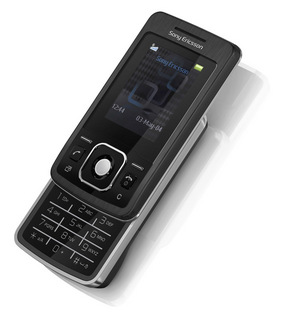Intel, HP open Merced details to the public.
Published:
2 June 1999 y., Wednesday
Proclaiming the package to be the most significant change in architecture since the Intel 386, partners Intel Corp. and Hewlett-Packard Co. on Tuesday took the wraps off their 64-bit Merced processor. Developers and the public alike can now surf the vendors_ Web sites to review information about the next-generation processor, which is expected to reach preliminary silicon stages in the next 60 days and reach production workstations and servers during the second quarter of 2000. In a press conference, the companies revealed the general structure of the CPU. The processor will contain more than 256 internal general-purpose registers, 128 floating-point registers using 84-bit floating point numbers, parallel numeric processing, 64-bit memory addressing (over 1.84 thousand trillion addresses), MMX and SIMD extension support, and symmetrical multiple processor abilities. The vendors say Merced also will maintain full compatibility with the 32-bit Pentium and HP_s PA-RISC MAX2 instructions. Although not revealing the processor_s core clock speed, company officials estimate that Merced should perform more than six gigaflops, or six billion floating-point operations a second, where the
current Pentium III does two gigaflops.
Copying, publishing, announcing any information from the News.lt portal without written permission of News.lt editorial office is prohibited.
The most popular articles
Software company announced new structure_ of it_s business.
more »
 An award-winning South Korean film director shoots a 30-minute movie using only Apple's iPhone 4.
more »
An award-winning South Korean film director shoots a 30-minute movie using only Apple's iPhone 4.
more »
 Nintendo aims to sell four million of its new 3-dimensional 3DS game console in the first 30 days of launch in Japan, U.S. and Europe.
more »
Nintendo aims to sell four million of its new 3-dimensional 3DS game console in the first 30 days of launch in Japan, U.S. and Europe.
more »
 Matchmaker Maria Avgitidis has a new love - Foursquare.
more »
Matchmaker Maria Avgitidis has a new love - Foursquare.
more »
 Gemalto,the world leader in digital security, today announced that the MEDEA+ ONOM@TOPIC+ project has been short-listed as one of the three finalists for the EUREKA Innovation award.
more »
Gemalto,the world leader in digital security, today announced that the MEDEA+ ONOM@TOPIC+ project has been short-listed as one of the three finalists for the EUREKA Innovation award.
more »
 China again warned Google on Tuesday to obey the nation’s law with its web search engine results, amid mounting signs the world No.1 could soon shut its mainland website.
more »
China again warned Google on Tuesday to obey the nation’s law with its web search engine results, amid mounting signs the world No.1 could soon shut its mainland website.
more »
 Video shot during a healthcare consultation can help patients recall important information and instructions later.
more »
Video shot during a healthcare consultation can help patients recall important information and instructions later.
more »
 High-speed internet is a basic good that must be available to everyone, Europe's local and regional politicians said today in support of the 'Europe 2020' goal of bringing broadband access to every home by 2013.
more »
High-speed internet is a basic good that must be available to everyone, Europe's local and regional politicians said today in support of the 'Europe 2020' goal of bringing broadband access to every home by 2013.
more »
 Wincor Nixdorf and HypoVereinsbank (HVB) have successfully completed one of the most extensive rollouts of self-service systems in Germany.
more »
Wincor Nixdorf and HypoVereinsbank (HVB) have successfully completed one of the most extensive rollouts of self-service systems in Germany.
more »
 Verizon Business will join the Open Identity Exchange consortium as an executive member to support a common, secure framework for access to Internet sites.
more »
Verizon Business will join the Open Identity Exchange consortium as an executive member to support a common, secure framework for access to Internet sites.
more »
 You can now access books, journals, films, maps etc from across Europe via the EU's online library, Europeana.
more »
You can now access books, journals, films, maps etc from across Europe via the EU's online library, Europeana.
more »